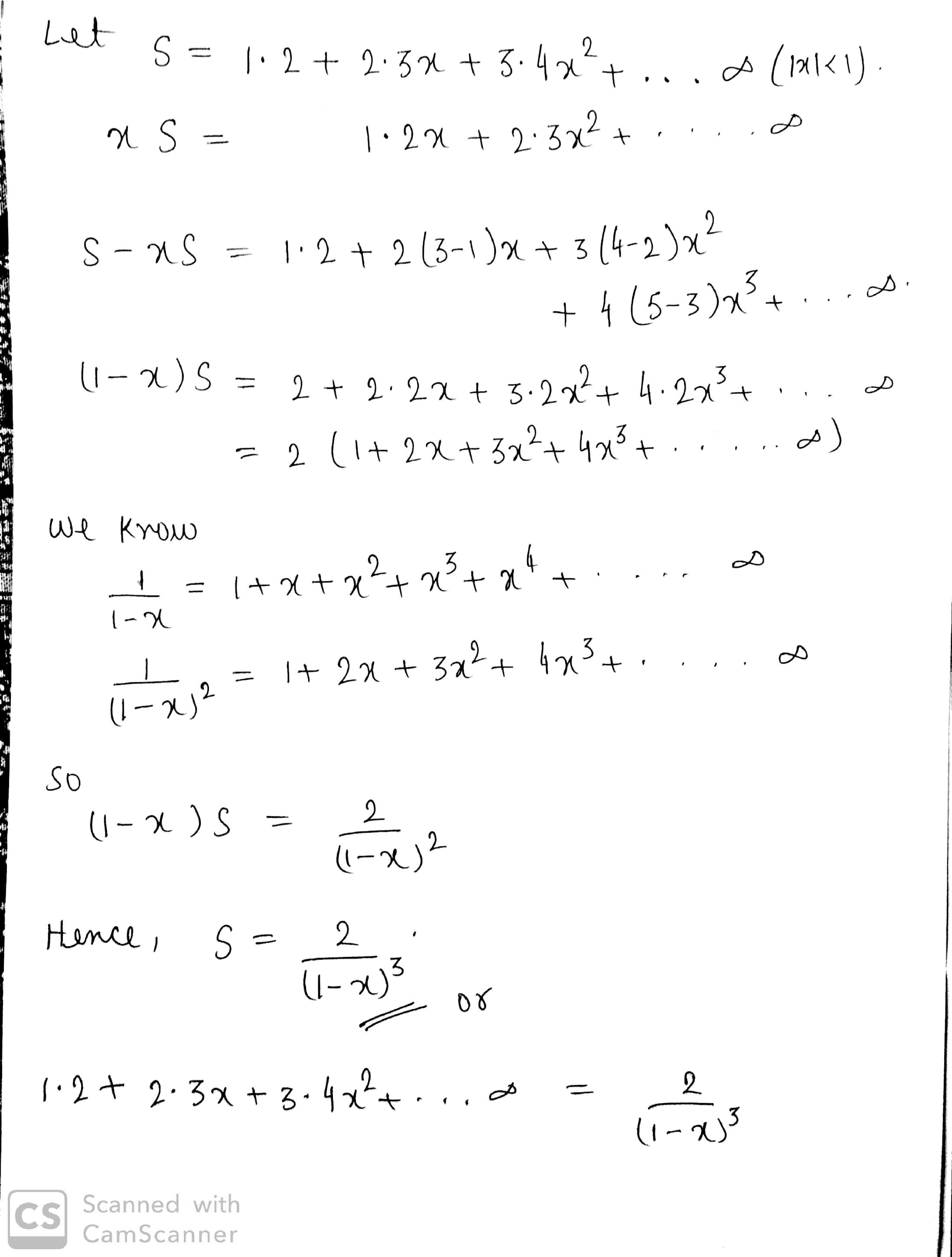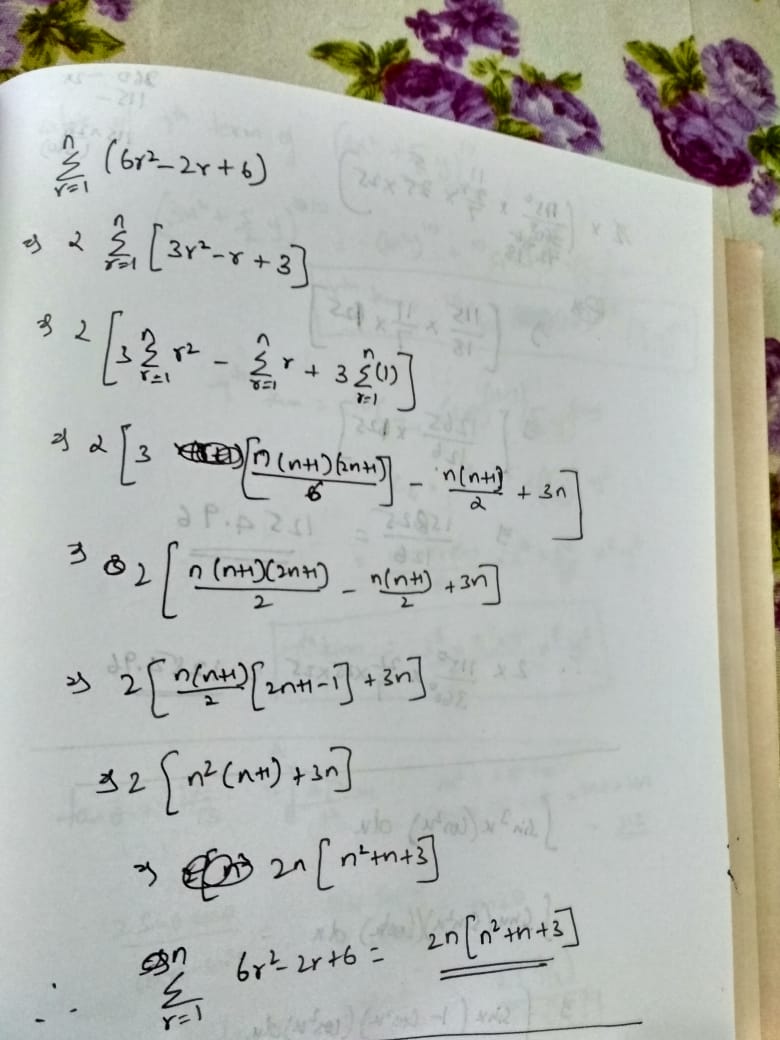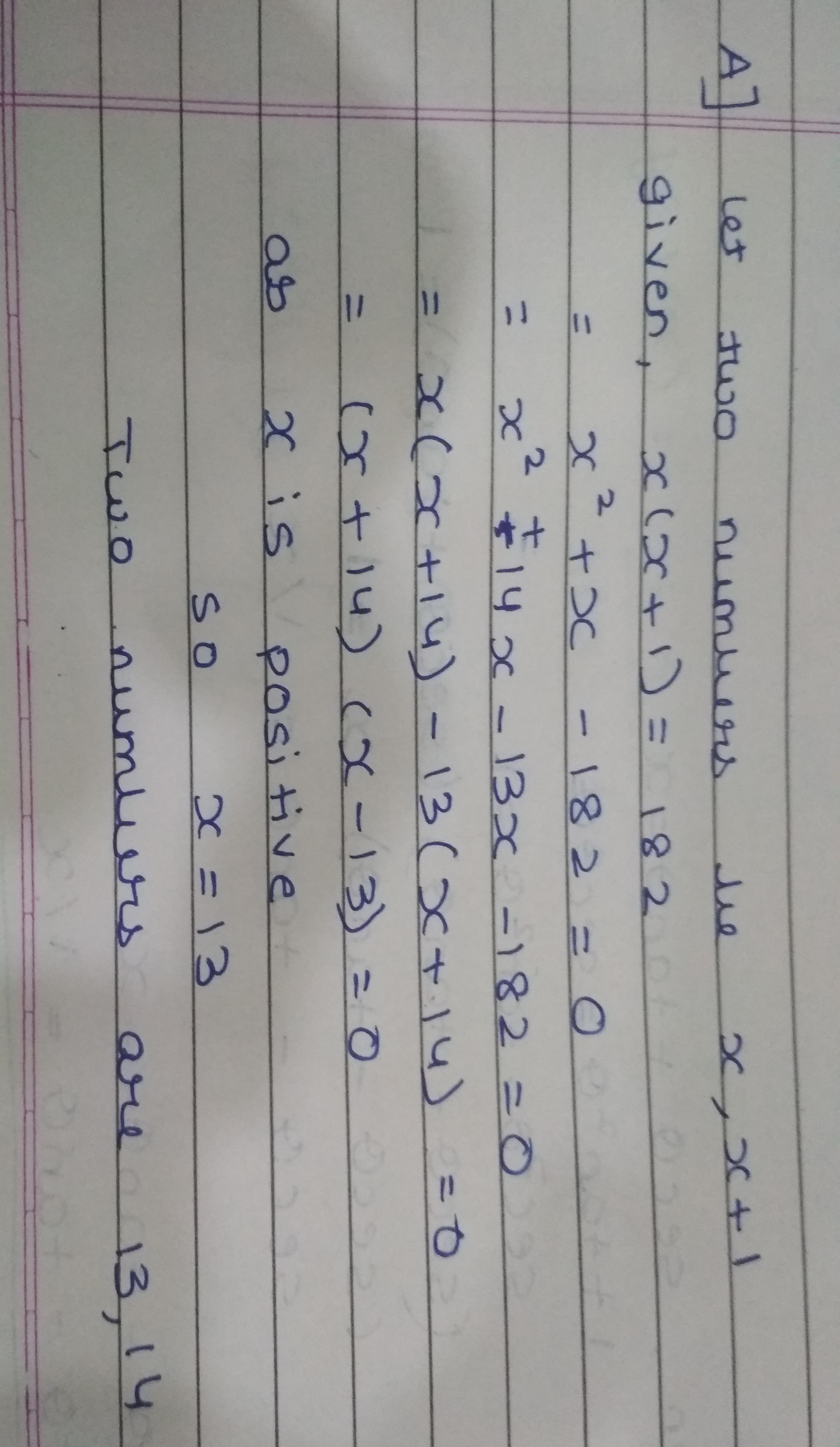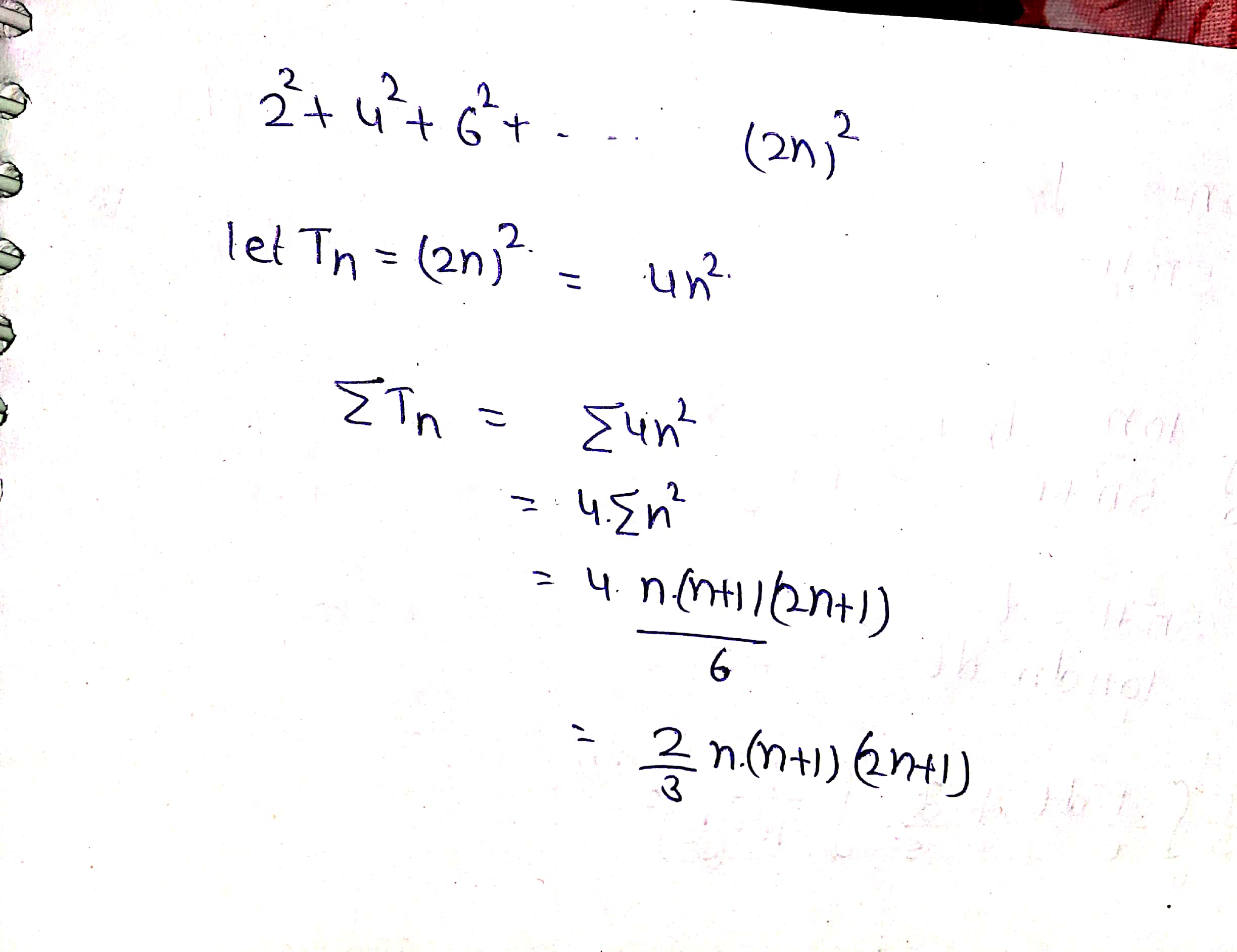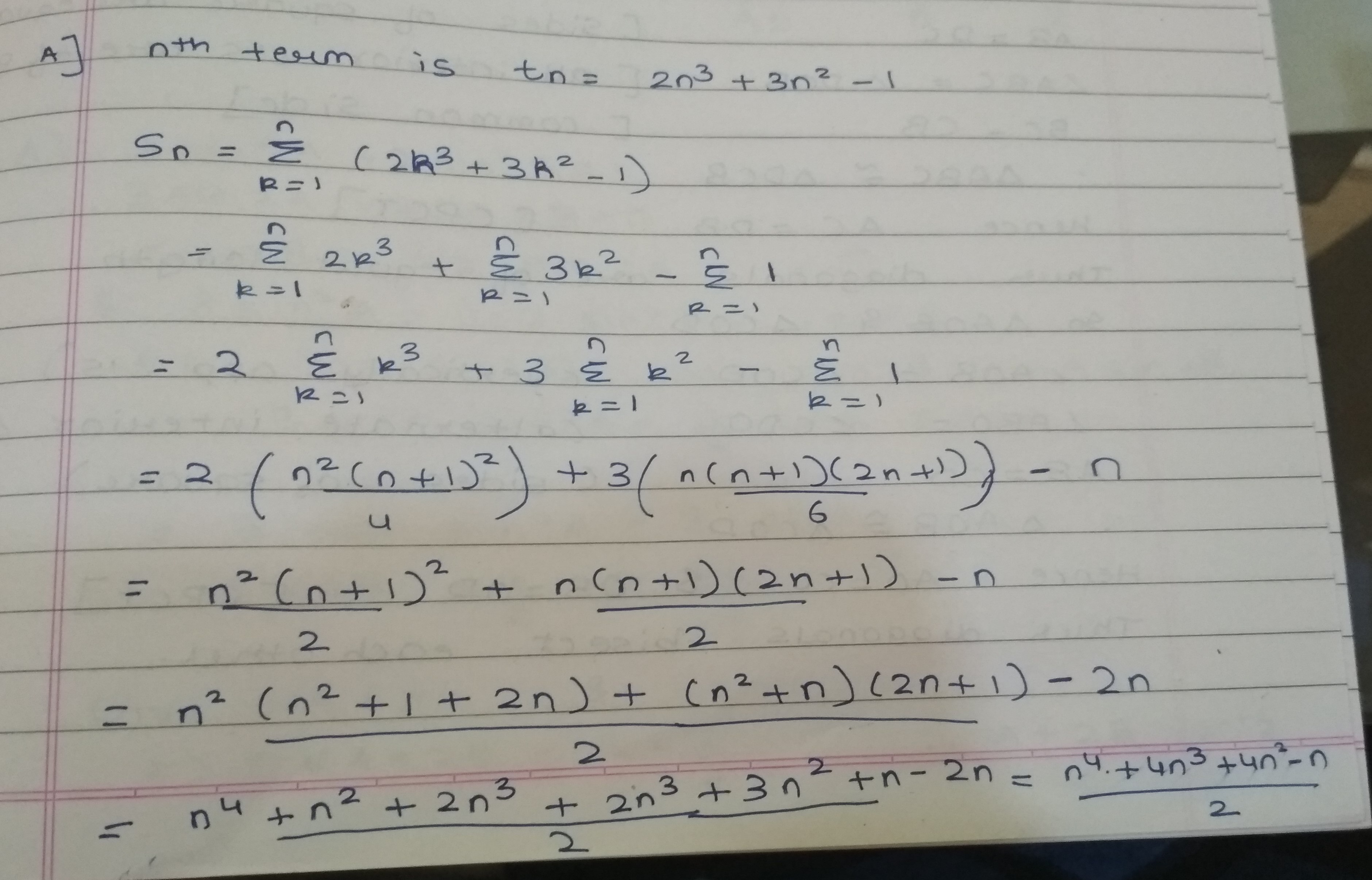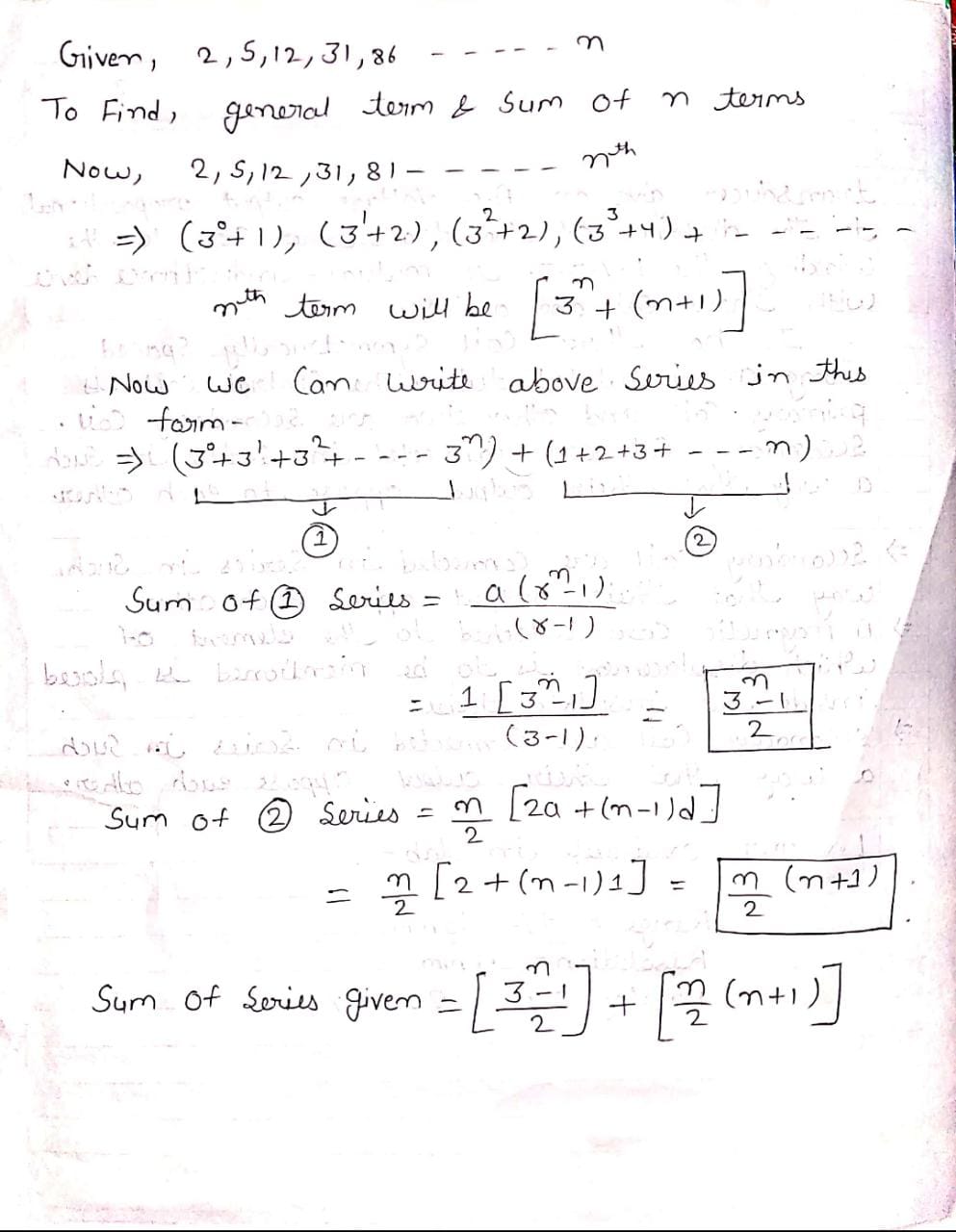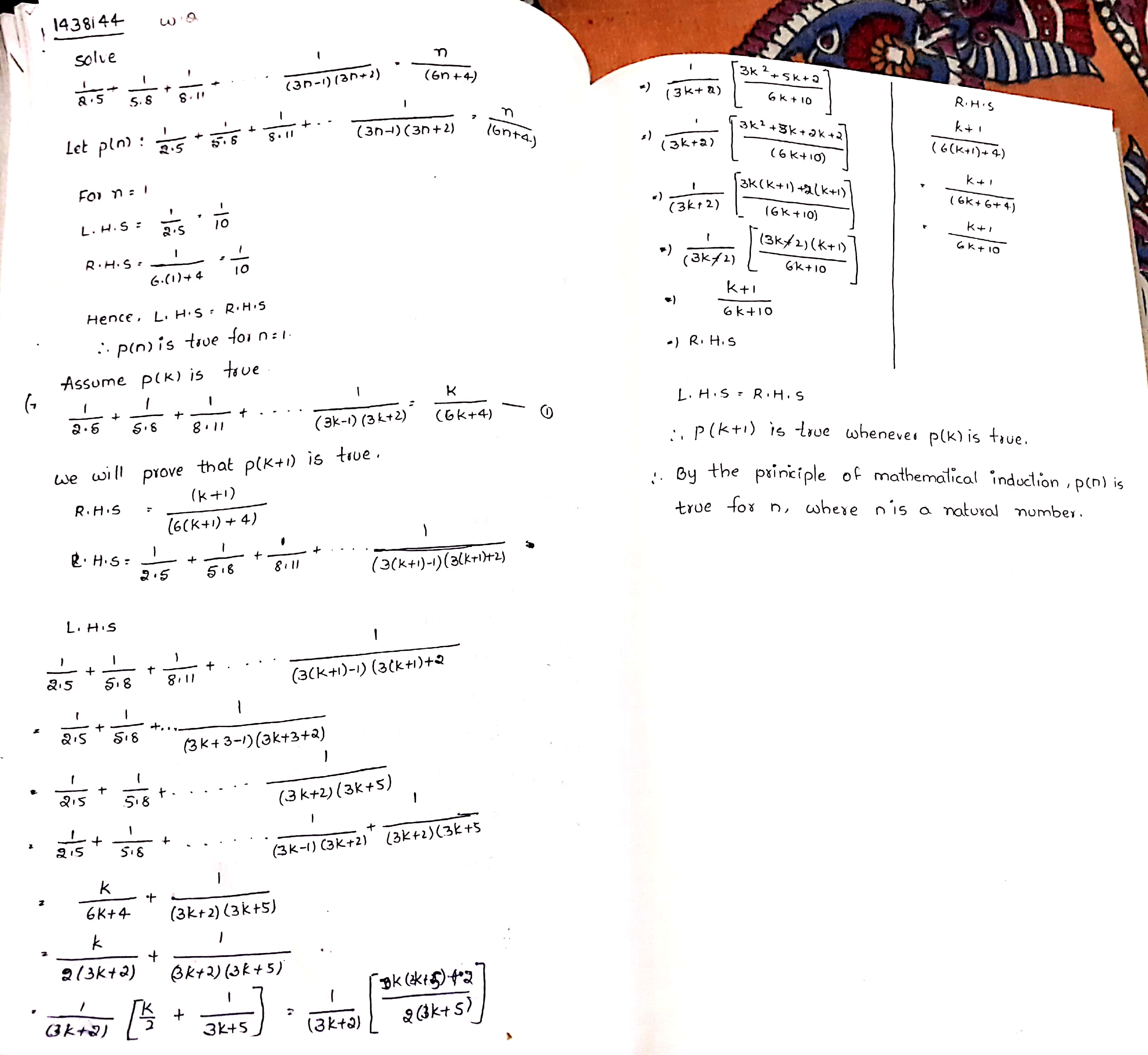Sequences And Series - Class 11 Commerce Maths - Extra Questions
Find the following sum.
n∑r=1(6r2−2r+6)
1.2+2.3x+3.4x2+....∞(|x|<1).
Write the general term for the given series 1(n−1),13(n−3),15(n−5),....
Solve:
n∑r=1(6r2−2r+6)
n∑r=1(6r2−2r+6)
The product of two consecutive positive numbers is 182. Find the numbers.
Evaluate 1+i2+i4+i6+...+i2n.
What is the sum of first 20 odd natural numbers?
Sum the following series
1+34+716+1564+31256+.... to infinity.
Find value of the sum 1sin45osin46o+1sin47osin48o+1sin49osin50o+.......+1sin133osin134o
Let a1,a2,...,an be fixed real numbers and define a function f(x)=(x−a1)(x−a2)....(x−an).
What is limx→a1f(x)? For some a≠a1,a2,...,an, compute limx→af(x).
If 11!10!+12!9!+13!10!+...+11!10!=2k!(2k−1−1) then find the value of k.
If β≠1 be any nth root of unity then prove that 1+3β+5β2+.....+nterms=−2n1−β
Let a sequence be defined by a1=1,a2=1 and, an=an−1+an−2 for all n>2,
find an+1an for n=1,2,3,4.
A sequence is defined by an=n3−6n2+11n−6. Show that the first three terms of the sequence are zero and all other terms are positive.
limn→∞1P+2P+3P+....+nPnP+1 equals-
Evaluate: n∑r=1(3r−1)(r+1)
Evaluate 11∑k=1(2+3k)
Solve :
11.2+12.3+......+1n(n+1)=?
Obtain 10∑r=2(4r2−28r+4a)
Find the sum to n terms of the series
1.22+2.32+3.42+...
Find the sum to n terms of the sequence, 8,88,888,8888,.....
11.3.5+13.5.7+.... to n terms.
Find the sum to n terms of the series, whose nth term is given by (2n−1)2.
Find the sum of series upto n terms whose nth term is (2n−1)2
Find the sum of 1+5+52+.... upto 8 terms.
Find the sum of the series 22+42+62+…+(2n)2
Show that 12+(12+22)+(12+22+32)+........ upto n terms =n(n+1)2(n+2)12,∀n∈N
Find the sum of the series whose nth term is :
2n3+3n2−1
(r+1)2+(r+2)2+....+n2
Find sum of n terms of following series ?
1+3x+5x2+7x3+…
For all real numbers a,b and positive integer n prove that:
(a+b)n=nC0an+nC1an−1b+nC1an−2b2+..........+nCnbn.
Prove that
C1C0+2C2C1+3C3C2+....+n.CnCn−1=n(n+1)2
Write the first five terms of the sequence and obtain the corresponding series:
a_{1}=a_{2}=2,a_{n}=a_{n-1}-1,n > 2
Evaluate:\dfrac{1+\dfrac{1}{2!}+\dfrac{1}{3!}+.......}{1+\dfrac{1}{3!}+\dfrac{1}{5!}+.......}.
Find the coefficient of x in the expansion of \left( 1+\dfrac { x }{ 1! } +\dfrac { x^2 }{ 2! } +\dfrac { x^3 }{ 3! } +...+\dfrac { x^n }{ n! } \right)
The sum, \sum _{ n=1 }^{ 7 }{ \cfrac { n\left( n+1 \right) \left( 2n+1 \right) }{ 4 } } is equal to ________
Determine whether the following series is convergent or divergent\displaystyle \frac {1}{1^p}+\frac {1}{3^p}+\frac {1}{5^p}+\frac {1}{7^p}+.....
Find the general term and the sum of n terms of the series:
2,5,12,31,86,......
Determine whether the following series is convergent or divergent\displaystyle 1+ \frac {1}{2^2}+\frac {2^2}{3^3}+\frac {3^3}{4^4}+\frac {4^4}{5^5}....
Determine whether the following series is convergent or divergent\displaystyle1 + \frac {2}{5}x+\frac {6}{9}x^2+\frac {14}{17}x^3+....+\frac {2^n-2}{2^n+1}x^{n-1}+....
If y=x+ x^2 + x^3 + ...\infty, where |x| < 1, then prove that
x= \left( \dfrac{y}{1+y} \right)
Prove that \left(\displaystyle a+\frac{1}{b+}\frac{1}{a+}\frac{1}{b+}\frac{1}{a+}....\right)\left(\displaystyle\frac{1}{b+}\frac{1}{a+}\frac{1}{b+}\frac{1}{a+}....\right)=\displaystyle \frac{a}{b}.
Find the sum of the infinite series 1 + \dfrac{2}{3}.\dfrac{1}{2} + \dfrac{2.5}{3.6}(\dfrac{1}{2})^{2} + \dfrac{2.5.8}{3.6.9}(\dfrac{1}{2})^{3} + ....\infty
Find sum of 3+33+333+3333+....... up to n terms.
Find the sum of the series (1^2+1)1!+(2^2+1)2!+(3^2+1)3!+......(n^2+1)n!
3+33+333+.....+n terms.
The sum of the series \displaystyle \sum _{ k=1 }^{ 62 }{ \frac { 1 }{ \left( k+2 \right) \sqrt { k+1 } +\left( k+1 \right) \sqrt { k+2 } } } .
How many three-digit numbers are there with no digit repeated?
Find the sum of the series 1.3^{2}+2.5^{2}+3.7^{2}+ to n terms.
Solve:
\frac{1}{{2.5}} + \frac{1}{{5.8}} + \frac{1}{{8.11}} + ...\frac{1}{{(3n - 1)(3n + 2)}}
Class 11 Commerce Maths Extra Questions
- Binomial Theorem Extra Questions
- Complex Numbers And Quadratic Equations Extra Questions
- Conic Sections Extra Questions
- Limits And Derivatives Extra Questions
- Permutations And Combinations Extra Questions
- Probability Extra Questions
- Relations And Functions Extra Questions
- Sequences And Series Extra Questions
- Sets Extra Questions
- Straight Lines Extra Questions
- Trigonometric Functions Extra Questions
